From New Quay, Burrin, Co Clare, Ciara O’Halloran is a director of the Redbank Food Company which sells ‘Flaggy Shore Oysters’and hosts the ‘Shuck Off’ oyster food tourism experience.
Ciara started the Redbank Food Company in 2015, and, working with a number of local oyster farmers and fishermen the brand, Flaggy Shore Oysters was created. In Redbank they expanded into the area of oyster tours and workshops, teaching people all about oystersand the biology of the local marine habitat.
Ciara’s Nuffield Scholarship focused on the concept of food tourism as an educational tool to shorten the gap between consumer and producer.
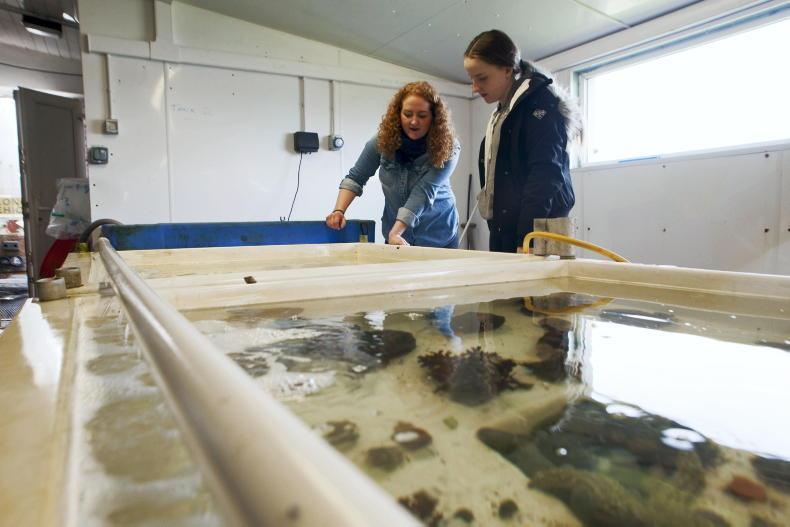
Ciara O'Halloran showing marine life to a visito. \ David Ruffles
Ciara says: “In recent years, a definite buzz has been created around the whole aspect of Food Tourism. During my scholarship, I visited aquaculture and agriculture farms operating tourism and educational experience in the United States, United Kingdom and New Zealand and I examined the role of state agencies and governments in supporting these businesses.
"Food tourism is a great way to address the disconnect between the consumer and the producer, while also providing businesses with a viable alternative to scaling their production in order to enhance their business.
"Small, niche experiences play a central role, stakeholder collaboration is key and that the area needs to be regulated through a framework, code of best practice, licencing or quality assurance to guarantee its success.”
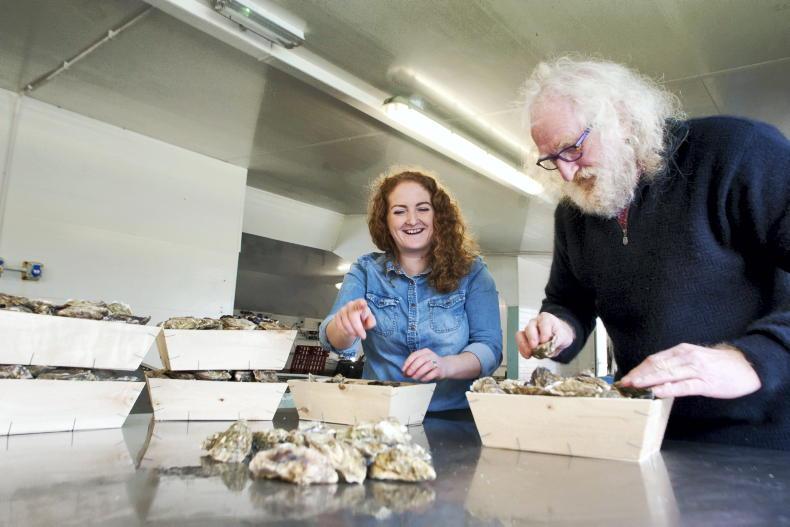
Ciara O'Halloran packing oysters with her father Gerry. \ David Ruffles
The main findings from Ciara’s report include:
• Experiences in food tourism can be a solution to the disconnect between the consumer and the producer.
• If done right, food tourism can be a viable alternative to scaling production for smaller businesses and support the existing business.
• Experiences in food tourism help support the UN’s Sustainable Development Goals, by acting as an income support in rural areas, and also have the potential to play a strong role in Developing nations as well as the more developed.
• Ireland’s tourism industry is putting a strong emphasis on and a number of strategies in place to promote food tourism within Ireland.
• Food tourism is currently an un-regulated area, and in order for the industry and local communities to benefit, there needs to be a framework or code of best practice or assurance quality mark to ensure all experiences offer quality to the consumer, the host and the industry.
• There is consumer demand for niche experiences which provide an emotional connection to the producer and their product.
• There are various ways to connect and educate consumers through larger scale operations or smaller experiences.
• There is great potential in the smaller niche experiences. Smaller numbers allow for authentic, unique experiences for a price that proves viable to the host.
• Ireland has great potential to marry its agri food and drink industry with its strong tourism industry (when this opens up again), providing benefits for all parties.
The Nuffield Ireland ‘lunch and learn’ series runs all this week featuring a 10-minute presentation at 1.30pm each day outlining the key findings of each scholar's Nuffield report. To register visit www.nuffield.ie/lunchandlearn.
Read more
Fit to farm? Nuffield scholar investigates the health status of Irish farmers
Farmer, vet and industry need to be 'at the table' to design health programmes
From New Quay, Burrin, Co Clare, Ciara O’Halloran is a director of the Redbank Food Company which sells ‘Flaggy Shore Oysters’and hosts the ‘Shuck Off’ oyster food tourism experience.
Ciara started the Redbank Food Company in 2015, and, working with a number of local oyster farmers and fishermen the brand, Flaggy Shore Oysters was created. In Redbank they expanded into the area of oyster tours and workshops, teaching people all about oystersand the biology of the local marine habitat.
Ciara’s Nuffield Scholarship focused on the concept of food tourism as an educational tool to shorten the gap between consumer and producer.

Ciara O'Halloran showing marine life to a visito. \ David Ruffles
Ciara says: “In recent years, a definite buzz has been created around the whole aspect of Food Tourism. During my scholarship, I visited aquaculture and agriculture farms operating tourism and educational experience in the United States, United Kingdom and New Zealand and I examined the role of state agencies and governments in supporting these businesses.
"Food tourism is a great way to address the disconnect between the consumer and the producer, while also providing businesses with a viable alternative to scaling their production in order to enhance their business.
"Small, niche experiences play a central role, stakeholder collaboration is key and that the area needs to be regulated through a framework, code of best practice, licencing or quality assurance to guarantee its success.”

Ciara O'Halloran packing oysters with her father Gerry. \ David Ruffles
The main findings from Ciara’s report include:
• Experiences in food tourism can be a solution to the disconnect between the consumer and the producer.
• If done right, food tourism can be a viable alternative to scaling production for smaller businesses and support the existing business.
• Experiences in food tourism help support the UN’s Sustainable Development Goals, by acting as an income support in rural areas, and also have the potential to play a strong role in Developing nations as well as the more developed.
• Ireland’s tourism industry is putting a strong emphasis on and a number of strategies in place to promote food tourism within Ireland.
• Food tourism is currently an un-regulated area, and in order for the industry and local communities to benefit, there needs to be a framework or code of best practice or assurance quality mark to ensure all experiences offer quality to the consumer, the host and the industry.
• There is consumer demand for niche experiences which provide an emotional connection to the producer and their product.
• There are various ways to connect and educate consumers through larger scale operations or smaller experiences.
• There is great potential in the smaller niche experiences. Smaller numbers allow for authentic, unique experiences for a price that proves viable to the host.
• Ireland has great potential to marry its agri food and drink industry with its strong tourism industry (when this opens up again), providing benefits for all parties.
The Nuffield Ireland ‘lunch and learn’ series runs all this week featuring a 10-minute presentation at 1.30pm each day outlining the key findings of each scholar's Nuffield report. To register visit www.nuffield.ie/lunchandlearn.
Read more
Fit to farm? Nuffield scholar investigates the health status of Irish farmers
Farmer, vet and industry need to be 'at the table' to design health programmes






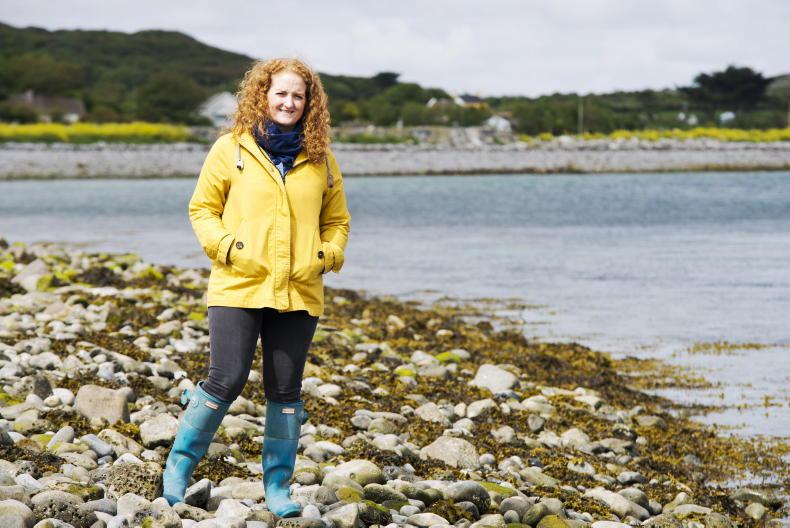
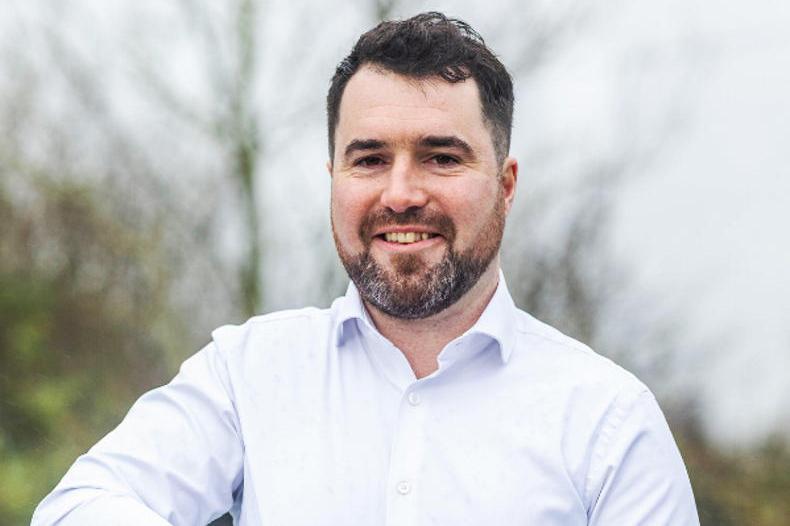
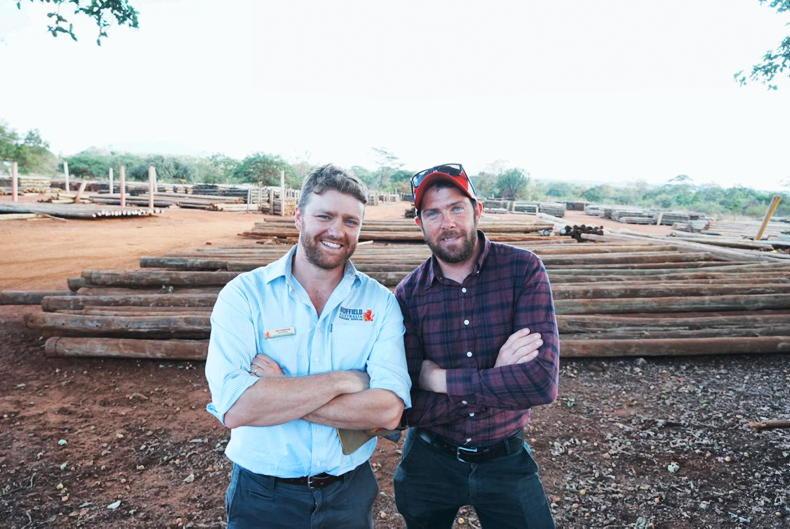
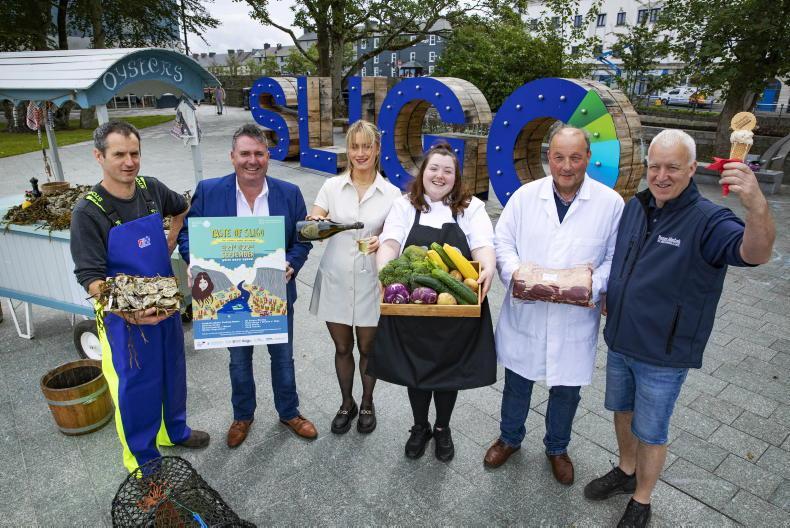
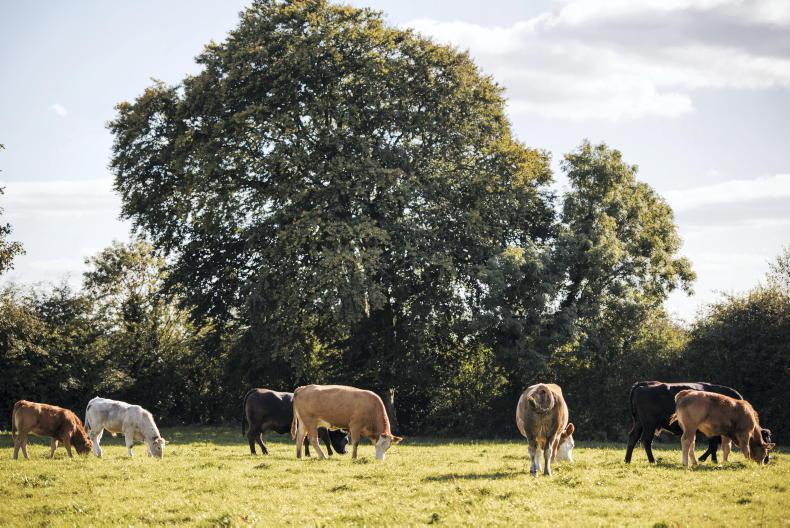
SHARING OPTIONS